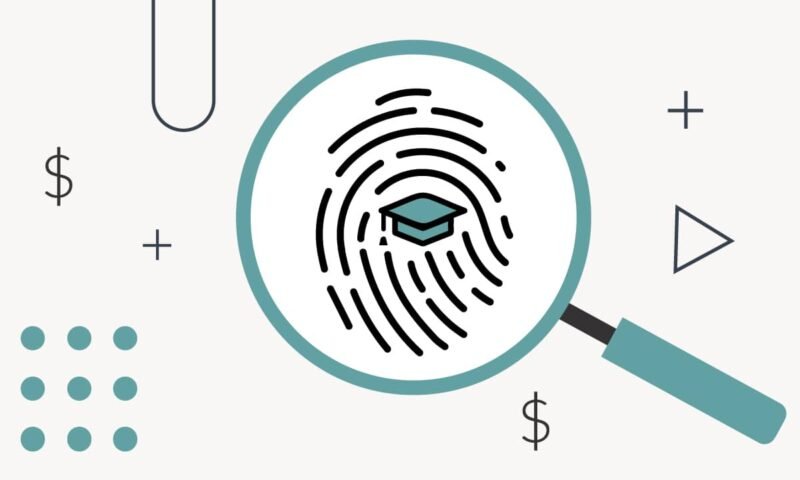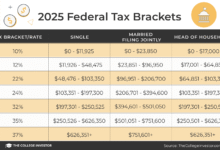

Key points
- If someone uses your identity to obtain student loans, act immediately — time is of the essence to stop collections and dispute the debt.
- Federal borrowers can request a false certification (identity theft) discharge through the Department of Education.
- Private student loan fraud should be disputed directly with the lender and credit bureaus.
Identity theft involving student loans is Increasingly common A crime (and a serious one). In these cases, someone is using your Social Security number or personal details To apply for a loan you never authorized.
It can happen when:
- The criminal uses your identity to enroll in a college and secure federal aid.
- A relative or acquaintance is fraudulently applying for loans in your name – even if it is a parent or child.
- Scammers exploit weak data protection or vulnerabilities in the FAFSA to create fake accounts.
If left unaddressed, these loans can lead to collection calls, wage garnishment, credit damage, and tax refund seizures — even though you never borrowed the money. We recently reached out to a reader, who was retired, and discovered that someone had opened a student loan in his name. They’ve been receiving collection calls as a result!
Would you like to save this?
How to detect student loan identity theft
Unfortunately, sometimes it is first discovered because you receive a collection letter or a call. But common warning signs include:
- Unable to file the FAFSA because someone has already created an account using your information.
- A new loan or service appears on your credit report.
- Unexpected bills or notices from loan servicers.
- Suspicious financial aid emails from a school you never attended.
- Legitimate credit applications denied due to “high student loan debt.”
You can verify that federal loans are in your name by logging in StudentAid.gov Using your FSA ID and checking Help Me. If you see a loan or school you don’t recognize, you’ll need to start the fraud reporting process immediately.
Step-by-step disputing fraudulent student loans
1.Contact your loan servicer
If you discover an unusual loan, contact the service center immediately. Tell them you believe the loan was taken out as a result of identity theft. Ask for time while the account is investigated. Get the provider’s name, phone number, and reference number for your records.
2.File a report at IdentityTheft.gov
Visit IdentityTheft.gov (The Official Portal of the Federal Trade Commission) and file an official identity theft report. You will receive a personalized recovery plan and an official identity theft report supporting your loan forgiveness application.
3.Report him to the police
File a local police report that specifically lists “student loan identity theft.” Keep a copy – required by the Department of Education for federal discharge.
4.Notify the Education Department
Send a Request to cancel the false certificate (identity theft).(PDF file), available at StudentAid.gov.
Attach:
- Your completed application form
- A copy of your police report
- FTC Identity Theft Report.
- Photo ID and supporting documents
Mail the package to your loan servicer or to the U.S. Department of Education address listed on the form.
5.Dispute private loans with lenders and credit bureaus
Private student loans are not eligible for federal discharge forms. instead of:
- Contact your private lender’s fraud department.
- Send copies of FTC and police reports.
- File disputes with Equifax, Experian, and TransUnion under the Fair Credit Reporting Act (FCRA).
- Ask each office to remove the fraudulent loan from your file.
6.Place credit freezes or alerts
Use the following links to freeze your balance:
A freeze prevents lenders from opening new accounts in your name.
7.Monitor follow-up activity
Keep checking your StudentAid.gov account and credit reports every few weeks. If you receive collection calls or new loan notices, document everything in writing.
Understanding False Federal Affidavit Discharge (Identity Theft).
If the Department of Education determines that your loan has been miscertified, your loan may be misapproved Completely unloaded –This means you owe nothing.
To qualify:
- It must be a loan Federalism (Direct or FFEL).
- You must never have benefited from the funds (for example, not attended classes or received funds).
- You must file a police report and an identity theft report.
- You must not have signed or approved the loan application.
After approval, the Ministry of Education will do the following:
- Discharge the entire balance.
- Remove the loan from your credit report.
- Refund any payments you have made.
- Notify collection agencies to stop contact.
If management denies the discharge, you can appeal within 30 days and provide additional evidence.
Private student loan fraud
Private student loans are not eligible for federal loan forgiveness as a result of identity theft, but lenders are required by law to investigate identity theft claims.
If your lender refuses to cooperate:
- Submit a complaint to Consumer Financial Protection Bureau (CFPB) in consumerfinance.gov/complaint.
- I will call you State Attorney’s OfficeWhich can often interfere.
- Seek legal help from a consumer law attorney who specializes in identity theft.
Prevent student loan identity theft
The easiest way to avoid these problems is to try to prevent them before they appear.
- Use two-factor authentication On StudentAid.gov and your service accounts.
- Never share your FSA ID or password With anyone – not even school officials or “loan assistance” companies.
- Check your StudentAid.gov dashboard quarterly To verify that no new loans have appeared.
- Shredding or encrypting documents Contains your Social Security Number (SSN) or tax information.
- Use credit monitoring Services that alert you to new accounts.
- Warn relatives or dependents Who may apply for assistance to protect their personal data.
Student loan scams are on the rise, so you need to stay vigilant.
Frequently Asked Questions: Frequently asked questions about student loan identity theft
1. How can I check if someone has taken out loans in my name?
Log in to StudentAid.gov Using your FSA ID to view all federal loans. Review your credit reports for any private loans or unfamiliar lenders.
2. Can I remove federal student loans from my record if they are fraudulent?
Yes. Send a Request to cancel the false certificate (identity theft). With supporting documents. If approved, the loans are canceled and your credit history is corrected.
3. What if the loans are private?
Dispute directly with the lender and credit bureaus. Private lenders must investigate identity theft under the Fair Credit Reporting Act.
4. Do I need to file a police report?
Yes. Both the Federal Trade Commission (FTC) and the Department of Education require one for identity theft charges.
5. Will my credit score recover after the fraudulent loan is removed?
Yes, once a release or dispute is approved, loans must be removed from your reports. Check back in 30-60 days to confirm.
6. How long does the checkout process take?
It can take Three to six months Depending on the documents and verification time.
7. Can parents or guardians commit this type of fraud?
Yes, and it’s more common than you might expect. You still have the right to request a discharge, even if the perpetrator is a relative.
8. Will I be responsible for the payments while they are investigated?
Usually not. You can order a patience While the administration reviews your claim.
9. Can I be denied federal assistance if this happens to me?
no. Once the fraudulent loan is removed, your eligibility for legitimate assistance is restored.
10. Where can I get free help?
Call me Federal Student Aid Information Center (1-800-433-3243) orlawyer Specializing in student loan disputes.
Bottom line
If someone takes out student loans in your name, don’t panic, but do wait.
Act quickly, collect documentation, and report the theft through federal and official credit reporting channels. The Department of Education’s false certification discharge exists specifically for this situation, and once approved, can erase fraudulent debts entirely.
Identity theft can be messy, but with persistence, you can clean up your record and reclaim your financial future.
Don’t miss these other stories:
$5,250 of employer loan assistance for students is tax deductible
The Department of Education stops withholding Social Security checks
Can Trump ban some workers from PSLF?
Editor: Clint Proctor
The post Student Loan Identity Theft: What to Do If Someone Takes Out Loans in Your Name appeared first on The College Investor.




